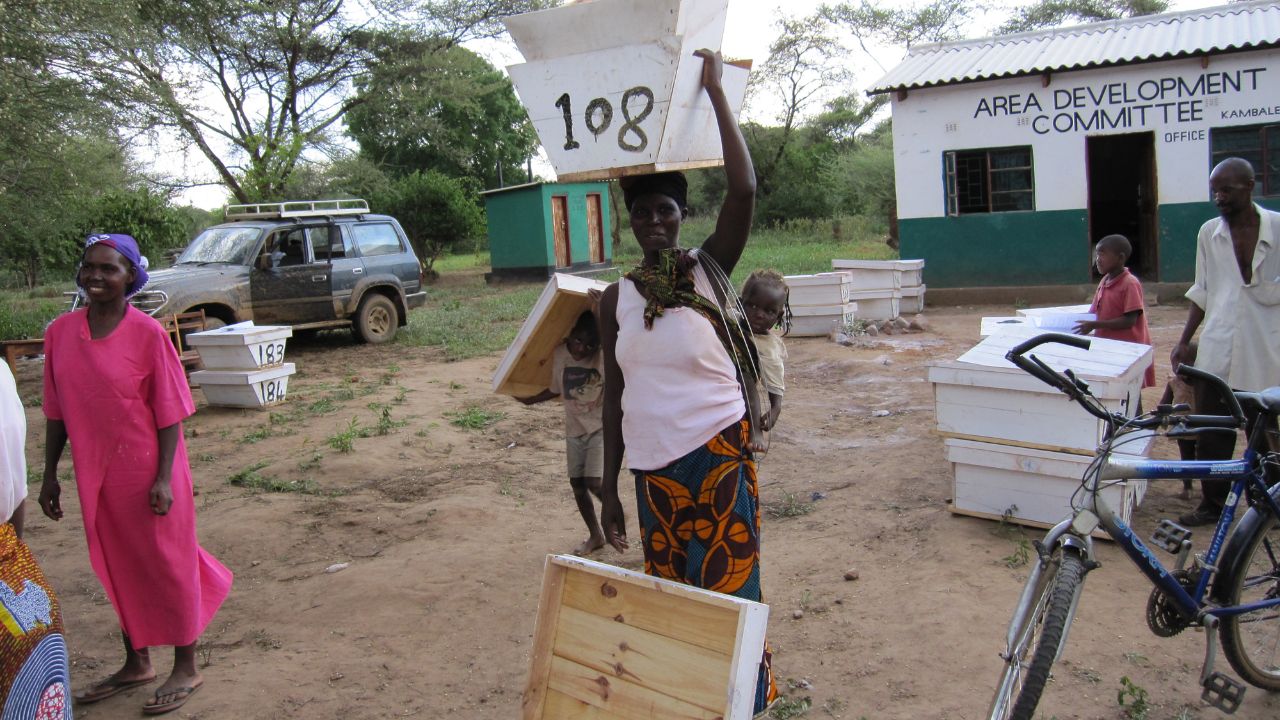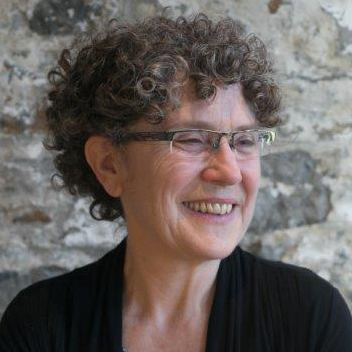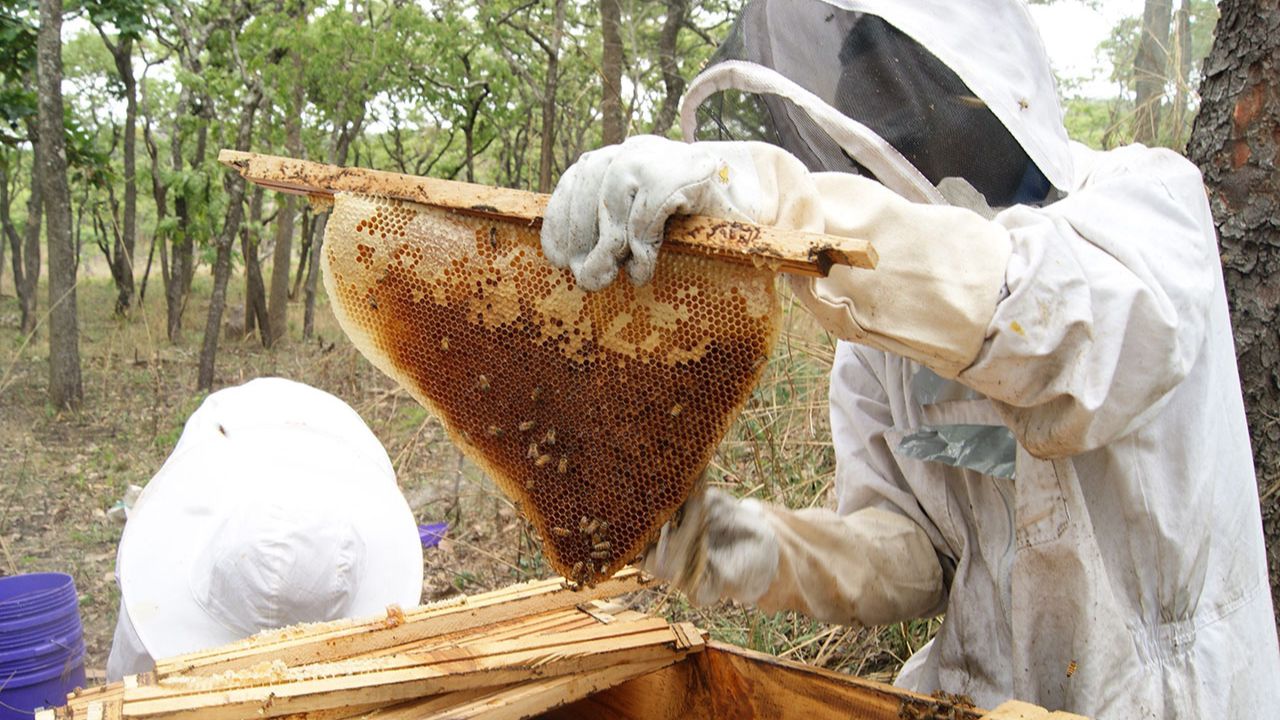Two local entrepreneurs want to show the world the difference a private-sector business can make on a global scale, starting with their bottles of African-sourced forest honey.
Paul Whitney and Liz Connell, co-founders of African Bronze, have developed a business model that helps marginalized communities in Africa get ahead, preserves threatened forests and environments, and protects pollinators, all while distributing honey packed with nutrients and antioxidants.
“We want to demonstrate how private businesses can effectively do international development work at a modest profit,” said Whitney.
OBJ360 (Sponsored)

Ottawa’s podcast studio gets a bold new look for leaders and changemakers
Eight years ago, JP Davidson launched Ottawa’s first dedicated podcast studio, Pop Up Podcasting. “At first I thought we’d be popping up temporary studios at clients’ locations,” he explains, “and

Experience full service strategic property management with Sleepwell Property Management
Since 2005, Sleepwell Property Management has been at the forefront of residential and commercial property management in Ottawa and the surrounding regions. What began as a local venture has grown

Based in Cardinal, African Bronze works with several African forest honey projects that, collectively, employ more than 10,000 beekeepers in Zambia and Tanzania. The company is organic, fair-trade and a Certified B-Corporation and was named Best For the World: Changemakers by B Lab three years in a row.
Whitney and Connell were living in Zimbabwe when they were approached by Dan Ball, a Zambian-Canadian “ecopreneur” who pitched a business idea that involved selling African-harvested honey and fighting deforestation – in an area so remote it was without cellphone access.
“We thought he was out of his mind,” laughed Whitney. But years later, when Whitney and Connell had returned to Canada, they heard from Ball again.
“He showed up and said, ‘We have 800 tons of honey shipped, help us value-add it and sell it in Canada and the U.S. We’re saving the last great forest in Africa,’” recalled Whitney. “You just can’t say no to that.”
Beekeeping has long been a respected profession in Africa, mostly for men. Ball’s team trains women as well as older teenagers and young adults as beekeepers, effectively doubling or even tripling household incomes. According to research from African Bronze, families use the additional income to fund education for their children, make improvements or repairs to their homes, or to invest in their own small beekeeping businesses.

“In those areas, the opportunities to make a stable income are few and far between,” explained Connell. “With beekeeping, almost anyone can participate. It leads to wealth generation and grows educational opportunities and health opportunities.”
The beekeepers are trained and equipped by Ball’s team and offered basic training in business, math and language to allow them to barter, market and sell their products. The beekeepers can choose to whom they want to sell, but producers and packing partners like African Bronze offer better prices and include pails to carry the honey.
African Bronze uses forest honey harvested from wild African bees reared in traditional hives made of renewable forest resources like hollow logs and sustainably harvested bark.
“One (beekeeping) project in Tanzania offsets 200,000 tons of carbon, which is directly attributable to beekeeping. The forest captures all that carbon and the forest is actually growing with the beekeepers there protecting it,” explained Whitney. “And we’re sending money directly back into the hands of some of the most marginalized people on the continent.”
At the beginning, Whitney and Connell admit they were faced with tens of thousands of bottles of honey and realized they had no idea how to sell it. They began with bulk sales and, once word got out about their honey, larger brands began incorporating it as an ingredient in their products. For instance, New Belgium Brewing Company, a Colorado-based brewery, created a beer using the honey.
“The production takes place in Africa, we’re just sellers and advertisers. We had to find ways we can penetrate the marketplace and at the same time find creative ways to grow the projects,” said Whitney. “They produce like hell and they need us to sell like hell.”
Now, African Bronze is tackling retail with smaller portions as well as with skincare and candles made from the honey. The company is self-distributing and selling wholesale to retailers, with an online store targeted toward consumers.

“It seems like a simple proposition, to sell honey, but when everyone has an idea of what honey is supposed to be and the honey we’re selling is different, it can be tricky,” explained Connell. “We’re educating people on what forest honey is because it has value as a food product and as a food-ceutical.”
While North American honey agriculture involves feeding bees with select plants like clover or wildflowers, African forest honey is the result of wild bees feasting on a whole forest of flowering plants and trees, including species not known in Canada.
It is also partially “honeydew” honey. In the African forests, certain species of insects collect sap from trees and leaves and store it. The sap is then stolen by bees “because half the work is already done,” explained Connell. “But that honeydew nectar is very high in antioxidants.”
The result is a rich, robust honey packed with antioxidants and nutrients – in Whitney’s words, “It is what honey used to taste like before we wrecked it with over-agriculture.”
“I like to say healthy food comes from a healthy environment,” said Connell. “In this forest, there are no pesticides and the bees are wild and healthy, unaffected by the things the bees here are under threat by. They naturally produce a healthier honey and they have access to a thousand flowering plants and trees, many of which are used as traditional medicine.”
While the business has grown, so too has the mission. Whitney said they’re focused on saving the forests and, to do so, their honey sales have to ramp up.
However, Connell points out that, as a B-Corp, there are lots of priorities when it comes to the future of African Bronze. The pair strives for sustainability and turning a profit, but “it isn’t profit at all costs.”

“People profit and the planet profits,” Whitney said. “We want to talk business and explain how business can be done better. Businesses can actually have a huge impact on making positive change. They can make real substantial cultural changes that can help guide society in the decisions that they make.”
The bees have also been helping the African communities in some unexpected ways. One challenge facing small communities in Africa is herds of marauding elephants that can damage villages and homes and even endanger children. There are few solutions to the issue that don’t harm the elephants.
“There are these wilderness areas and the wildlife are really under incredible pressure and there have been efforts to determine how humans can live with the animals,” said Whitney.
Beekeepers have begun creating “bee fences,” basically beehive “posts” set up around the village. Humans can walk through the posts but elephants avoid the bees for fear of being stung, particularly inside their long trunks or large ears.
“The more we sell, the more beekeepers are employed, the more the environment is protected,” said Connell. “One of the reasons Dan went into business was he was running aid projects and, when the money dried up, everything went back to how it was before.
“When there is a sustainable product to sell, people keep doing it, they have incentive to protect the forest and they earn money.”
In the coming months, Connell and Whitney plan to renovate their warehouse on Dundas Street East in Cardinal into a more retail-focused space. They say, for them, it isn’t about “throwing money” at foundations and charities; it’s about adopting practices into business models that have lasting positive impacts.
“There’s this idea that consumerism is going to destroy us. On the present course, it probably will,” said Whitney. “But the other part of that is that if business takes a leadership role in solving global problems, we can turn the path of the world around.”
-
 beekeeper 1
beekeeper 1 -
 beekeeper 3
beekeeper 3 -
 Beeswax wraps _ candles
Beeswax wraps _ candles -
 wild honey
wild honey -
 beekeeper 5
beekeeper 5 -
 beekeeper 4
beekeeper 4 -
 beekeeper 2
beekeeper 2












